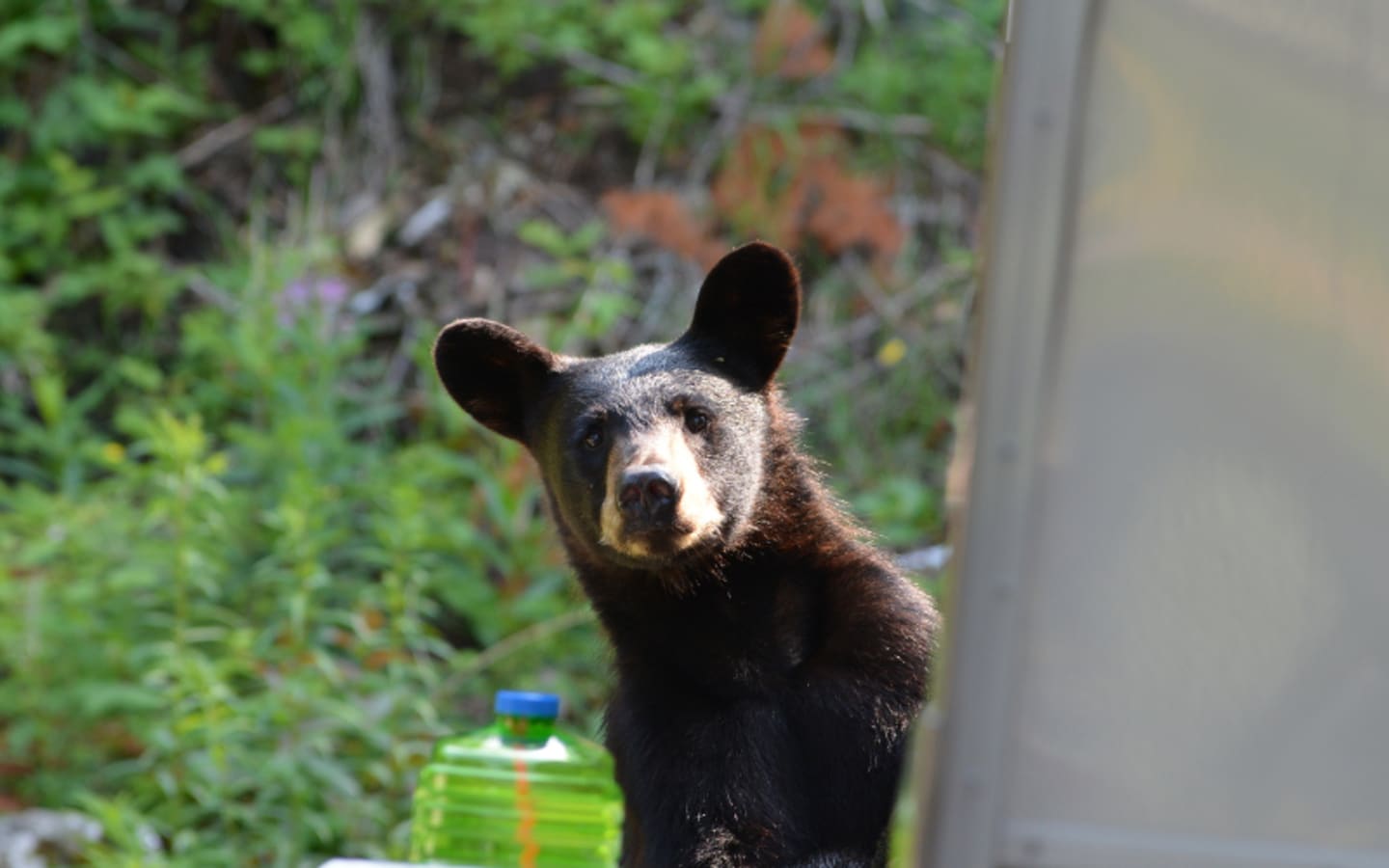Camping in bear country is a thrill, but it ain’t no joke when you’re sharing the woods with furry giants. Whether you’re pitching a tent in Yellowstone or the Smokies, staying safe around bears is all about being smart and prepared. Here’s a rundown of practical safety tips to keep you and your crew out of trouble, based on research, expert advice, and a little personal know-how from a sketchy encounter I had last summer.
1. Pick Your Campsite Like a Pro
Set up camp away from bear hotspots like berry patches, streams, or game trails. Bears are lazy sometimes and stick to easy food sources, so don’t plop your tent in their kitchen. Look for open spots with good visibility—nobody wants a bear sneaking up for a midnight snack. Last summer, I camped near a creek in Montana, and let’s just say the rustling I heard at 2 a.m. wasn’t the wind. Lesson learned: scout your spot carefully.
2. Keep Your Food Locked Up Tight
Bears have noses like bloodhounds, sniffing out your PB&J from miles away. Store all food, trash, and smelly stuff (like toothpaste or deodorant) in bear-proof canisters or bags. If you’re car camping, stash it in your trunk. Hang food bags at least 10 feet off the ground and 4 feet from tree trunks if canisters ain’t an option. Pro tip: cook and eat at least 100 yards from your tent. Spilled chili on your sleeping bag? Yeah, that’s a bear magnet.
3. Don’t Be a Slob
Cleanliness is next to bearlessness. Wash dishes right after eating and pack out all trash. Don’t bury food scraps—bears will dig ‘em up faster than you can say “Yogi.” Use biodegradable soap if you’re washing stuff in the wild, and scatter dirty dishwater far from camp. I once left a granola bar wrapper in my pocket, and a curious raccoon (not a bear, thank goodness) tore through my tent flap. Close call, but it taught me to double-check my gear.
4. Know Your Bears
Black bears and grizzlies ain’t the same. Black bears are usually shy and will scamper if you make noise, but grizzlies can be more aggressive. Learn what’s in your area. If you’re in grizzly country, carry bear spray (and know how to use it). Keep it handy, not buried in your pack. Check local ranger stations for recent bear activity—those folks know the scoop.
5. Make Some Noise
Bears don’t wanna meet you any more than you wanna meet them. Sing, clap, or yell “Hey, bear!” while hiking, especially in thick brush or near loud streams where they might not hear you coming. Travel in groups if you can; bears are less likely to mess with a crowd. My Montana trip? I was solo and quiet—big mistake. Now I belt out tunes like nobody’s listening.
6. What to Do If You See a Bear
If you spot a bear, stay calm. Don’t run—it might trigger a chase. Talk softly, wave your arms slowly to show you’re human, and back away without turning your back. If it’s a black bear and it charges, fight back like your life depends on it (it might). For grizzlies, play dead—lie flat, cover your neck, and stay still until it’s gone. Bear spray is your best friend here; aim low and let it rip if the bear gets within 20 feet.
7. Gear Up Right
Invest in a good bear bag or canister, a sturdy tent, and bear spray (check that it’s not expired). Electric fences are a thing for backcountry camping—pricey but worth it in grizzly-heavy zones. Pack clothes you only wear for cooking to avoid food smells on your sleeping gear. And don’t sleep in the same outfit you cooked in, unless you want to smell like a walking buffet.
8. Respect the Rules
Follow local regulations—they’re there for a reason. Some parks require bear canisters or have strict rules on where you can camp. Rangers ain’t trying to ruin your fun; they’re keeping you safe. Check for advisories before you go, and don’t skip the fine print just ‘cause you’re eager to roast marshmallows.
Camping in bear country doesn’t have to be scary if you play it smart. It’s about respecting nature and knowing how to coexist with wildlife. My near-miss in Montana spooked me, but it also made me appreciate how awesome it is to share the wilderness with creatures like bears. Stay alert, keep your camp clean, and you’ll have stories to tell—not nightmares.





